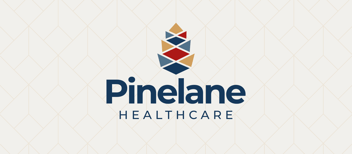Addressing Healthcare Staff Shortages: The Rise of Incentives and Pay Adjustments - Independent Article
In the ever-evolving landscape of healthcare employment, attracting and retaining qualified professionals has become an increasingly daunting challenge. Recent reports highlight the lengths to which employers are going to fill crucial positions, ranging from offering substantial sign-on bonuses to providing housing accommodations. The healthcare sector in Ireland is witnessing a profound transformation as organizations grapple with staffing shortages amidst a backdrop of economic and social changes.
A recent article sheds light on the measures being taken by healthcare employers to entice workers to fill vital roles. Desperation to bridge the workforce gap has led to innovative strategies, including offering sign-on bonuses of up to €5,000, extended holidays, and even housing provisions. Private hospitals, in particular, are feeling the squeeze, resorting to such incentives to compete for qualified staff.
The salary landscape in the healthcare sector has undergone notable shifts, with junior staff seeing significant pay increases over the past year. However, more experienced professionals have largely seen stagnant wage growth. This disparity underscores the challenges in retaining seasoned workers and the efforts needed to address this issue comprehensively.
Moreover, the housing crisis in Ireland has further complicated matters, prompting healthcare providers to step in as landlords by offering rental accommodations to their employees. This move not only demonstrates a commitment to supporting staff but also reflects the extent to which the housing shortage permeates various sectors of society.
In addition to monetary incentives and housing provisions, healthcare employers are exploring other avenues to attract and retain talent. Competitive benefits packages, including pension options, sick leave, and extra holidays, are becoming common offerings. These measures not only enhance the overall attractiveness of healthcare roles but also contribute to the well-being and satisfaction of employees.
The impact of these changes is palpable across various roles within the healthcare sector. From kitchen porters to medical social workers, wage adjustments are being made to reflect the evolving dynamics of the industry. The increased hourly rates for roles such as healthcare assistants signify a recognition of the invaluable contributions made by frontline workers.
Looking ahead, it is clear that staffing and recruitment will continue to pose significant challenges in the healthcare sector. Factors such as mandatory sick pay, pension scheme changes, and minimum wage increases add layers of complexity to an already intricate landscape. Adapting to these changes requires a concerted effort from both employers and policymakers to ensure a sustainable and thriving healthcare workforce.
In conclusion, the healthcare sector in Ireland is undergoing a period of transformation driven by staffing shortages and evolving economic realities. Employers are responding with a range of incentives and pay adjustments to attract and retain talent. While these measures offer short-term solutions, addressing the root causes of workforce challenges will require sustained efforts and collaboration across the board.
Feel free to connect with us here or with our consultant Eoghan Kennedy who has a number of staff ready to assist you!


